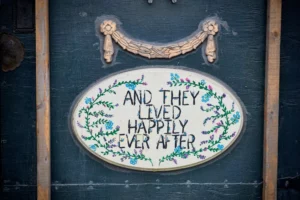“The Year Without Sex.” There’s a title that’ll stop you for a sec.
It’s a recent interview of author Hephzibah Anderson in The Atlantic. Anderson is, according to the article, …
an attractive, successful British journalist in her early 30s who enjoys a life of jet-setting between London, New York, and Paris. And after ringing in her 30th birthday, she swore off sex for a year.
After swearing off sex for a year, Anderson wrote a book about her experience — Chastened. In the interview, Anderson makes some interesting points. Among them — how she realized that “sex was really clouding my judgment”; how she wanted to steer clear of religion and “reclaim chastity for a mainstream, secular, non-politically divisive audience” and how she determined that “we’ve lost any sense of healthy emotional entitlement. I think if you go to bed with somebody, it is a kind of bond; it’s not nothing, however much we try to say it’s nothing.”
It was refreshing to see someone really question, as she calls it, the “kind of sex I was supposed to be cool with as a postfeminist, twenty-first century Western woman—a casual sort of intimacy without intimacy.” But in the midst of her personal discovery that maybe the sex culture wasn’t all it was sold to be, she also seemed to be reluctant to fully reject this postfeminist ideal.
I’m in no way advocating for the clock to be turned back … I don’t think we should go back to the point where sex is this terrifying thing and most people are so ignorant they’re never going to be satisfied.
Terrified? Ignorant? Never satisfied? Seriously?
It’s not the first time I’ve heard those insinuations. I can remember distinctly being assured by a high school friend, quite condescendingly, after returning from my honeymoon that I simply could not have enjoyed myself, having had no previous sexual experiences with my husband. I simply smiled, assured her we were coming along just swimmingly and that she had no cause to be concerned.
I’d love to sit down with Anderson and explain something similar. Living a “clock turned back” kind of life (by which, I assume she means a life that more closely matches the Bible’s sexual guidelines) is neither terrifying, ignorant or unsatisfying. Yes, the Bible is clear about God’s parameters for sex, but it is just as clear in encouraging unselfish, mutually satisfying sexual union within those parameters. As Tim Challies points out in his blog, “Puritans and Sex,” the modern day perception that Puritans were (and, I would say, “Christians are …”) sex-phobic is just plain wrong: “The Puritans were hardly Puritanical when it came to their attitude toward sex.” In fact, one Puritan writer Challies quotes, said that married couples should engage in sex “with good will and delight, willingly, readily, and cheerfully.”
It’s true today, too. As Christians, we know that God designed sex as a wonderful gift and that His boundaries are for our good and His glory. I hope that Anderson will come to that knowledge someday.
But, for you, some encouragement. God’s plan for sex is a great one. Keep the faith.
Concerned about “sexual compatibility”? Don’t be. As John Thomas writes,
You’ll just have to trust me (and thousands upon thousands of marrieds) on this one: Sexual compatibility is something that grows, matures, enhances over time.
He’s absolutely right. My hubbie and I just celebrated a milestone anniversary, where we talked about this very subject over some shrimp risotto. We’re thankful for God’s guidelines. We’re thankful for times of learning, laughing and loving together. I think you’ll be thankful, too.










